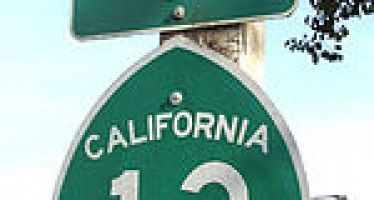Can Ticket Surcharge Cure Paralysis?
By WAYNE LUSVARDI
Can tacking a $3 surcharge on all traffic tickets in California cure spinal cord injuries? Assemblyman Bob Wieckowski, D-Fremont, apparently thinks so.
Wieckowski’s proposed AB 190 would tack on a $3 surcharge to every traffic ticket in California to generate $11 million in annual funding for stem-cell research to cure paralysis — or rather budget paralysis for heroic causes that produce little other than symbolic hope for paralysis victims and jobs programs for the highly educated.
It is difficult to know what paralysis AB 190 would cure: the physical debilitation caused by spinal cord injuries or loss of funding for what is called “Roman’s Law” in California. Roman’s Law keeps the funding going for the Roman Reed Spinal Cord Research Act that, in turn, subsidizes the Roman Reed Spinal Cord Injury Research Program at the Reeve-Irvine Research Center at the University of California, Irvine.
The Roman Reed Spinal Cord Injury Research Act was enacted in 2000 and was named after Roman Reed, who in 1994 tragically became paralyzed after a college football accident.
Seven other states provide funding for spinal cord damage research by traffic violation surcharges, including Florida, Illinois, Kentucky, Missouri, New York, New Jersey and South Carolina ($100 per each DUI conviction). The aggregate results of all these programs have not yet produced a cure or treatments other than exercise programs and improved surgical techniques for paralysis victims.
Renew Funding?
Funding for the California Roman Reed Program has been ongoing since 2002 and now is up for renewal. But the state is broke and the Legislature doesn’t know where to get the money for a program that would symbolically keep politicians elected, but would otherwise serve mostly as a jobs program. Like much of California’s state budget problem, funding often goes to hollow activities that, upon investigation, are found to be nothing but jobs programs.
Stem cell treatments have slightly improved motor function in those suffering from paralysis due to strokes and injuries, but these are anecdotal cases. It is not known yet whether such cures would be worse than paralysis. Recent research has shown that stem cells are the leading suspects in causing cancer.
The Roman Reed Program is, however, highly “profitable.” In addition to the $11.5 million in research grants awarded and $1.6 million in graduate student scholarships, it attracted $63.8 million in new National Institutes of Health federal funding to California over the last 10 years.
With the federal government staring at future insolvency mainly due to entitlement programs, it is uncertain if the Roman Reed Act would attract further federal funding. California already provides $300 million a year in funding for stem cell research under Proposition 71, passed in 2004, and funded with $6 billion in general obligation bonds that add to the state budget deficit.
Renewal of the funding would help defray the $251,031 salary of Oswald Steward, director of the Reeve-Irvine Center.
General Fund Broke
The Roman Reed Act monies would be better spent going into the state general fund, which provides money for Medi-Cal. Most victims of spinal cord damage end up on Medi-Cal and Medicare anyway due to the large initial costs of treatment ($775,000). But then, why not just call it a Medi-Cal tax? But if it would be a Medi-Cal tax, then what is the reason for imposing it solely on traffic offenders?
Defunding the Roman Reed Act (AB 750 and AB 1794) would not be a symbolic vote against all those victims of paralysis in California. Rather, it would be way of saying that we already are funding for their care through the state general gund, which is in need of major surgery because the state is broke.
So hitting California drivers with a surcharge on any traffic tickets would mostly be a contrived deadweight tax for another jobs program for the highly educated. Is it a fair policy to enact an insidious program of transferring wealth from California’s struggling households to fund high-tech jobs? All that we are doing is taking jobs and college scholarships out of the private sector and transferring them to the public sector so that politicians can claim credit and buy votes.
In a therapeutic culture, politicians are prone to lead the public into thinking they can cure everything, from tragic spinal cord injuries to the state budget. Maybe a Greek sense of tragedy would help us deal with both while further pursuing stem-cell research through private-sector venture funding.
Related Articles
Bill could double car registration fees
A bill that could double California counties’ vehicle registration fees has passed the Legislature, and is awaiting a signature
Appeals court backs property rights
Pasadena is known for its famous tree-lined streets. It now also may be known for the trees becoming the key
California Now a 'Zombie State'
MAY 23, 2011 By JOHN SEILER In our 18 months online, we at CalWatchDog.com have detailed the massive burden of





